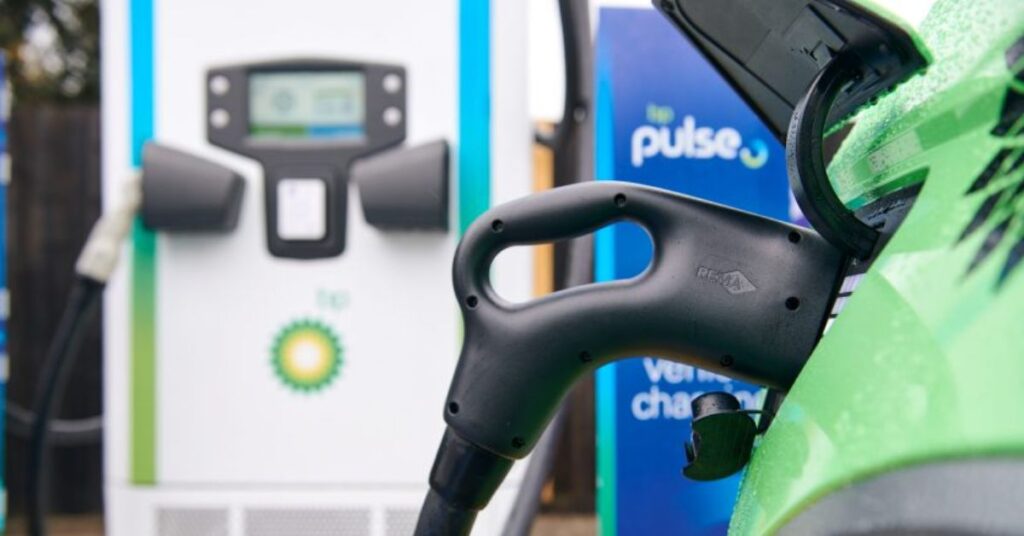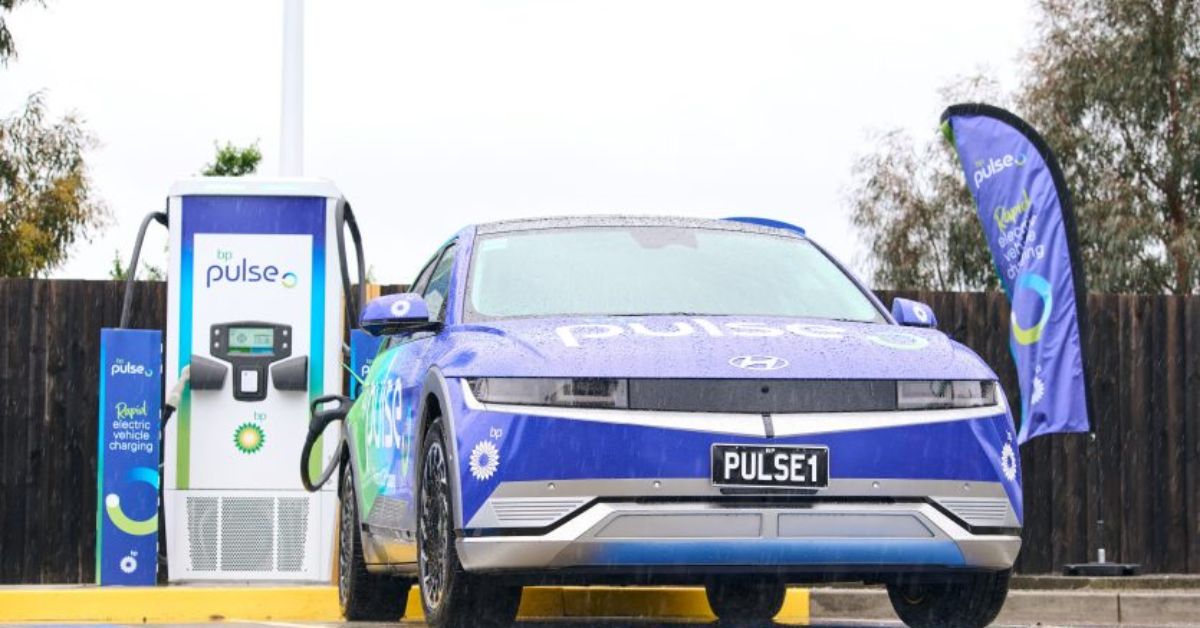Bp has launched its electric vehicle charging brand ‘bp pulse’ in Australia at Brighton East in Melbourne, two other sites in Caboolture and Victoria are also now open to the public.
Bp global CEO Bernard Looney officially opened the new ‘bp pulse’ fast charge points at bp Bayside at Brighton East in Melbourne which served as its launching site. Sites at Diamond Creek in Victoria and Caboolture are also now online.
“It’s brilliant to get bp pulse underway in Australia, delivering a high-speed, high-quality charging experience to help accelerate the transition to electric vehicles,” Mr Looney said.
Australia’s ambition is to be a renewable energy superpower and this is just one of the ways we are backing the country that has backed bp for more than a century.”
The launch of bp pulse is just part of bp’s plans to install 600 charge points across the country and 100,000 EV chargers globally. The initial rollout will have these charging stations installed at key metropolitan and regional bp retail locations along Australia’s east coast. The locations will likewise offer bp’s outstanding food and beverage range.

“We want to provide our customers with a fantastic experience and meet their needs, irrespective of their choice of mobility,” Frédéric Baudry, president, bp Australia and SVP fuels & low carbon solutions, Asia Pacific, said
“We will be on the journey with them through this decade and beyond with growing numbers of fast, reliable chargers at convenient locations with great retail options, whether they want to eat, drink or shop.”
Bp partnered with Brisbane-based manufacturer Tritium who will supply the chargers as part of a multi-year contract to deliver for bp’s UK, Australian and New Zealand markets. Each Tritium charger has two connectors and can charge two vehicles at a time with each charger offering both CHAdeMO and CCS plugs and charging at a rate of up to 75kW.
The company plans to connect the new and existing chargers to high-power grid connections in 2023, enabling the installations to have charging speeds of up to 150kW. The electrification of mobility is part of bp’s commitment to becoming a net zero company by 2050 and in support of broader measures to reach net zero including a 43 per cent emissions reduction by 2030.












